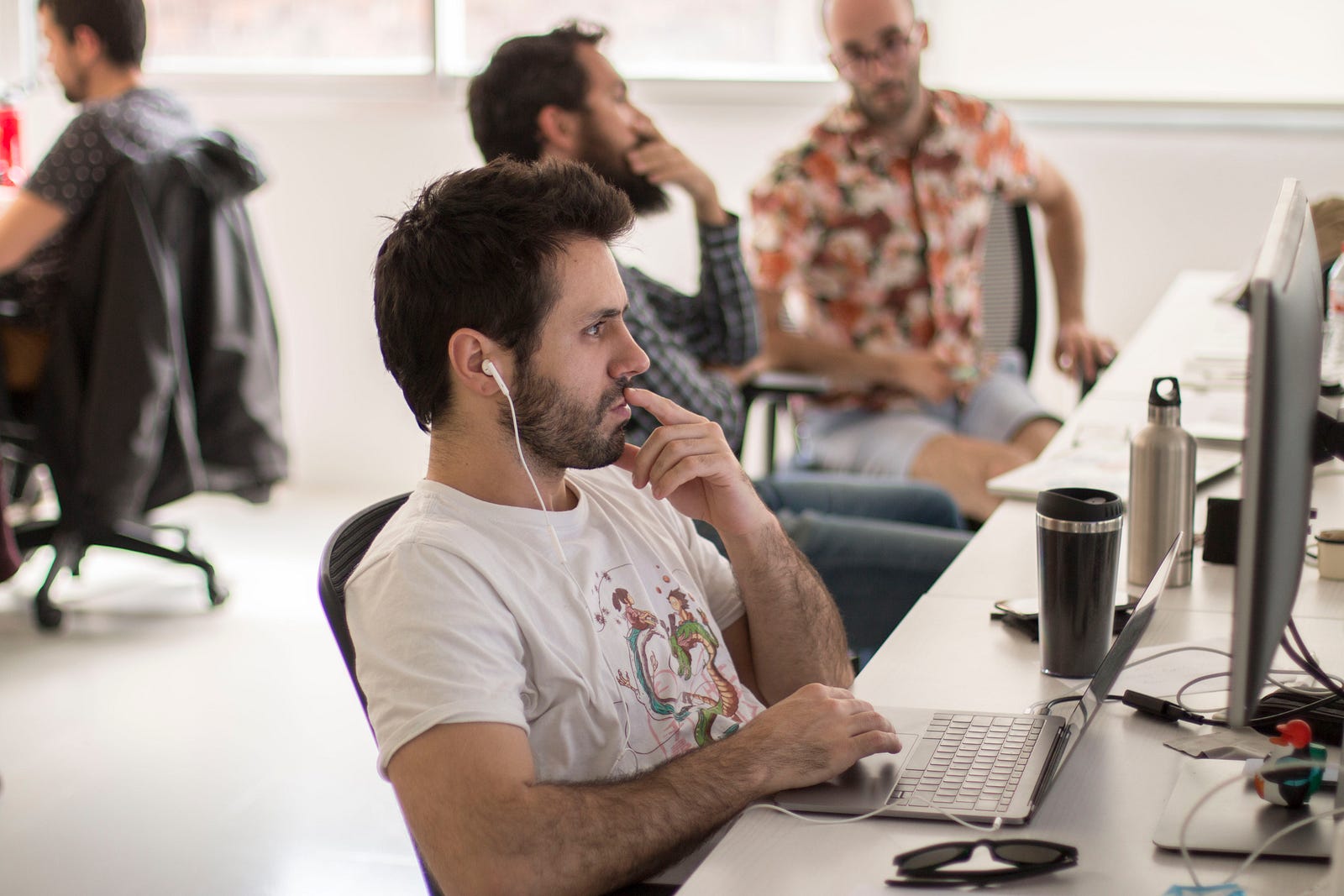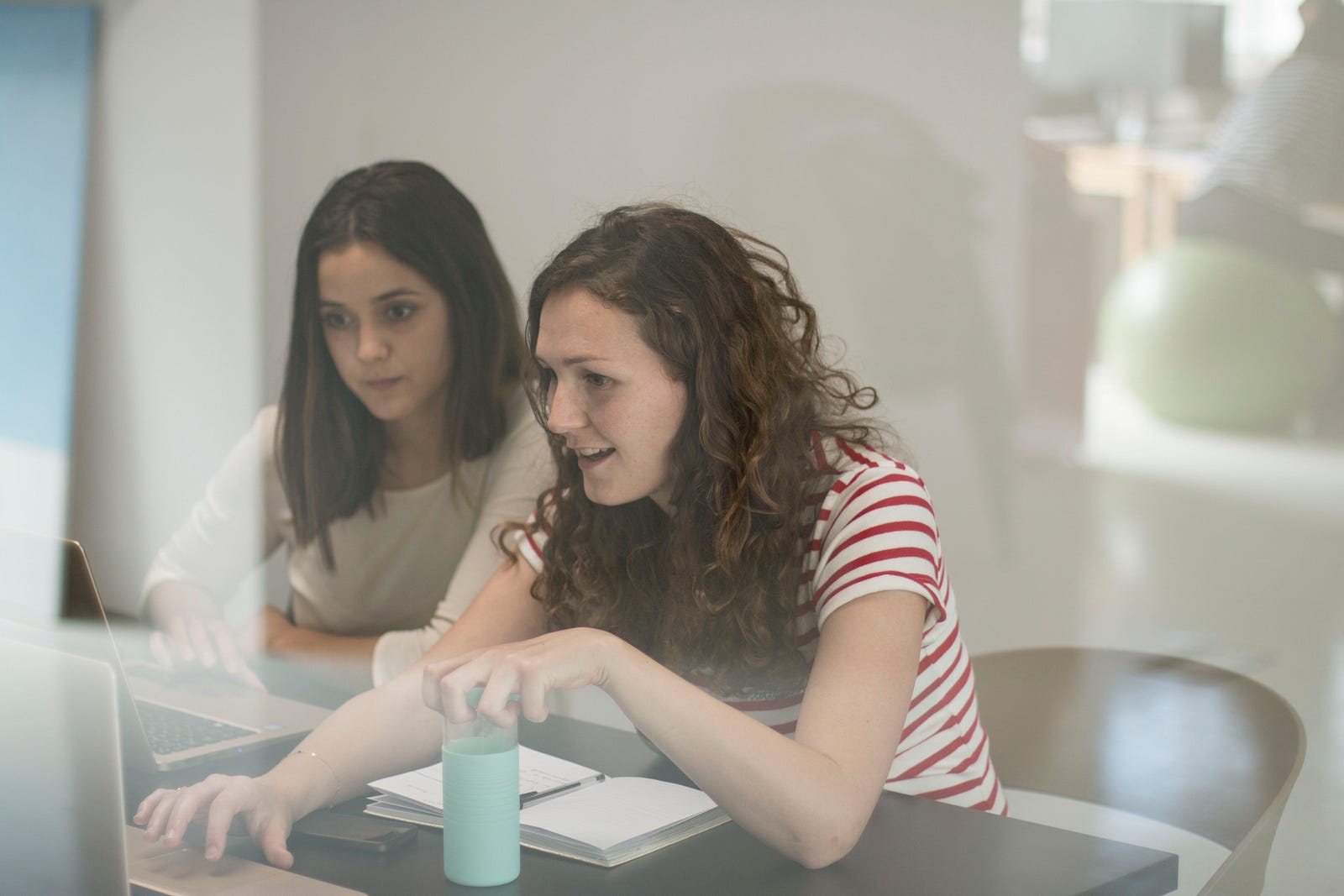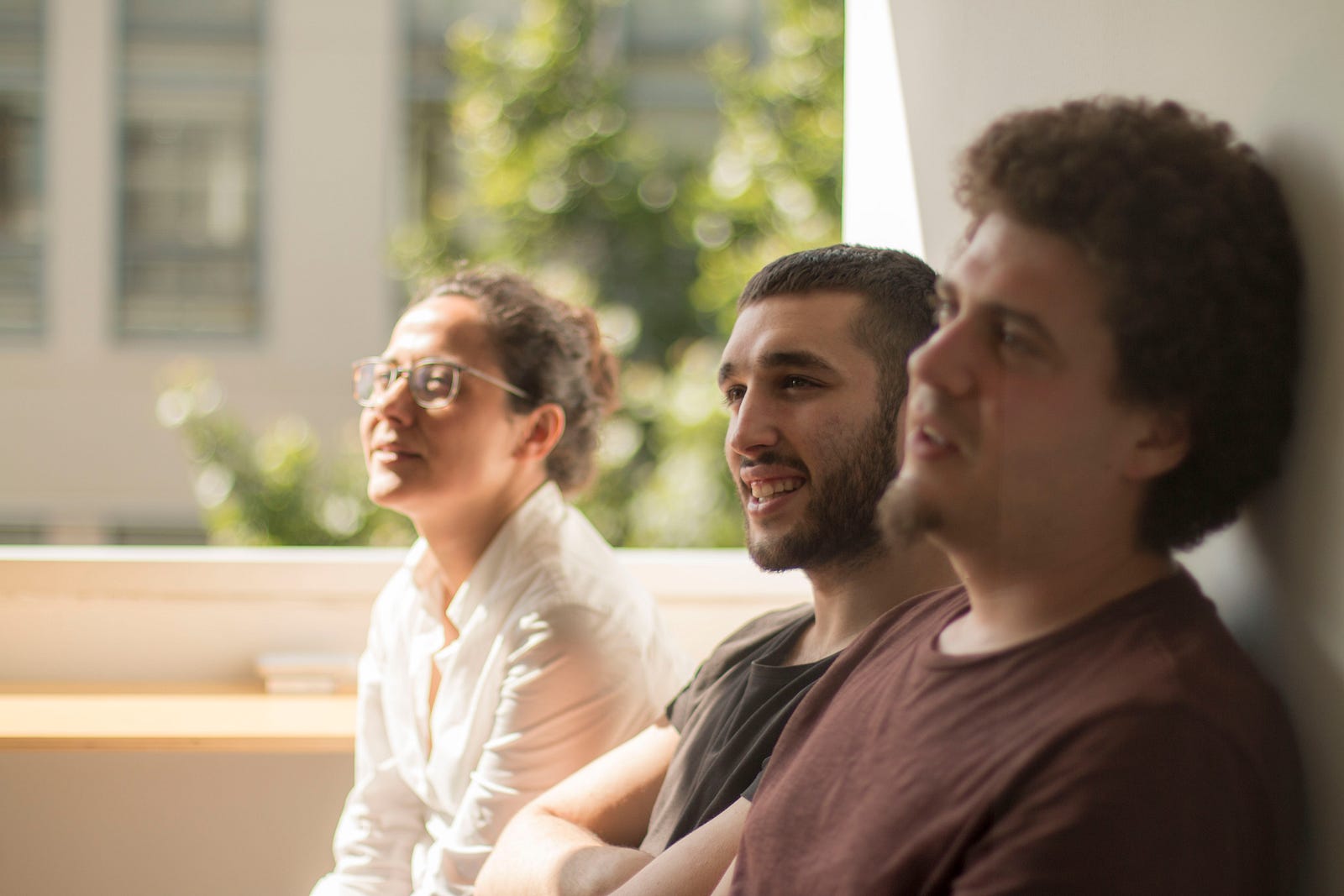As it’s probably the case with most startups, the biggest brake in our growth is the difficulty in finding the right talent. It’s hard to find smart, motivated and ambitious people who are a good fit at the right time.
In this post I am trying to reflect on what we have done so far, why we have failed and what we could do in the future. If you are reading this and are interested in working with us, I hope it gives you insights into how we think and what is a good way of connecting with us. Originally these ideas were shared between our teams while going through different interview process — sharing our learnings and failures.
It’ s a work in progress. With every interview and new person we meet we are learning and adding new thoughts to this reflection.
At itnig we have an internal HR team focussed on growing the different startup teams. With the exception of Camaloon who counts with their own HR team, I am thus in contact with each startup to understand their current and future needs. In this way, we have the advantage of being able to join efforts between startups and to find a the right fit for a candidate — it’s like a puzzle but with multiple places that connect to each piece. As the teams are working mostly on technological solutions we are looking for talented developers, product owners and designers as well as sales and marketing passionates.

Being one of the biggest stoppers in our growth means that we give the process of recruitment a high importance — a lot of what we do evolves around it and we have thought long and thoroughly about how to design a process of finding and connecting with the person in question which we try to transmit through all teams in our organization. Just as in the beginning of our startup journey the first new team members were old friends, colleagues and friends of friends, now as we scale up we have to find new ways of connecting with promising new developers, marketers, sales professionals.
When we call or invite a candidate for an interview we are most interested in finding out about the person and not so much in talking about us. Our first goal is setting the stage for an interesting conversation, giving all our attention to the person and bringing her or him to talk. Setting the right tone for an interesting conversation begins even before you lock eyes or shake hands — it’s in the preparation. To us it’s important to inform the candidate beforehand whom she or he will be meeting, what to expect of the conversation and how to continue in getting to know each other. It’s a long process of mutual discovery which can take months — a lot of times we won’t match the first time but keep in touch with talented people for the future.
What does it mean to interview at itnig?
These are a few ground rules we set ourselves:
- We aim to give a brief introduction to situate the person: Who are you? Why are we here? — We try to find things in common just with the goal to establish a good ground for conversation
- We are curious to learn about the candidate so we’ll try to let you speak
- We ask open questions, it’s probably also what we encounter in our day to day lives
- We try to remember that even though we can talk all we want about values, what really transmits them is our behavior (humility, curiosity, sense of humor, respect while treating other people, full attention to the candidate instead of computers or phones…)
- As general traits for next team members we look for intelligence, flexibility, drive, ambition and a hands-on resolutive person — with the idea that this person can replace us and take over any part in our companies
Before the interview process
Before we reach out to potential candidates we want to be sure we are all on the same boat and aligned in what we are looking for in a person. We try to stick to these ideas in all the recruitment processes we do.
- We want to establish a clear idea of technical / professional skills
- We try to define what personality traits are important to succeed in this position (curiosity, team player, communication, organized..)
- We agree on the frame of the process in terms of timings, people involved, steps of interviews and if we want to involve extras like written or technical tests, simulations (like role-plays), team get-togethers, cross-references, past work to check…
- We aim to set our expectations for the future of this role, how the team will evolve, what we imagine to change in the next few months before reaching out to candidates
- We strive to work out the big picture and convey what we think is the most interesting and appealing in this specific position
Only if we as an already existing team are clear and aligned on what we are looking for while talking to new people can we present a coherent picture and come to a conclusion.

Who we are as a company — What is in it for the candidate?
Other than talking about our individual company history, current daily work for this position and the vision and outlook for the future we think it’s also interesting to give a general overview of itnig and what this means for the development of the individual and the organization as a whole.
At itnig this means:
- Technological base
- Innovative products in their respective industries
- Hard working, effort, do-it attitude & focus on execution
- Ecosystem with shared open office space & events
- Sharing of knowledge between different startups
We see itnig as a space open to learn and to grow, an honest and transparent environment with its feet on the ground, where we value effort, learn from our mistakes by trying and are focussed on the execution.
What is important to know?
In general, when I get together with a candidate for any of the positions, I am curious to learn about past experiences and educational background, to understand his/her current situation, expectations for the future, other interests and motivation for our particular startup.
- Reason for leaving current job. A straight question will probably get a superficial answer, so I try to look for details. Is the company / position in danger? Did the person disagree with team or company strategy? Is he/she doing a good job?
- Plans for future. I try to find out what the person is looking for in his/her future. What does he/she want to learn? How does the person imagine to work? What can we offer to the personal growth of the person?
- Personal life and extracurricular activities. A lot of the times what a person does in his/her ‘spare time’ says much more about him/her than the actual job. What are the causes they care about? Any hobbies? Sports? I try to find out what makes them tick, what moves them and where they see their most value.
- Motivation or interest in working with us. I ask the person why she/he is here. What are their expectations? What do they know about us? What is most exciting for them in our job offer or company? Ask how they chose which company to apply to, what they are looking for and whom we are competing against. I think it’s important to leave a lot of space for questions from the candidate.

How can we find out about personality?
After the technical and professional capacities of the person in question are clear to me, I am curious to find out more about him or her in terms of personality, values, hobbies and ambitions for the future. As this is a tricky part, we’ve tried to come up with some questions. These are also questions I ask myself and often stumble with the answer 😉
- What are the qualities you appreciate most in your co-workers?
- What traits make a person likeable?
- What’s the most interesting you have learned this year?
- What changes have you made in working with others to be more effective at work?
- What extracurricular activities did you do in college?
- Side projects?
- Can you describe a time when your work was criticized?
- Have you ever misjudged someone?
- What are you especially good at compared to others?
- What’s the one accomplishment you’re most proud of and why?
- What do you think is the most important aspect or ability of your craft?
- What do you want to learn in this year?
- How do you inform yourself of changes in your industry?
- What publications do you read?
- What are you looking for in a company?
- In what kind of work environment do you prefer to work?
I want to enjoy the conversation, make a friend, be curious!
In the end, there are no right or wrong answers but it’s a way of discovering more about the other person. What are their values? What is important to them and where do they compromise? Other than the professional talent, it’s also important for me to see somebody we are looking forward to meeting every day and spending the day together, solving problems and sometimes getting stuck on hard ones together.
What motivates us?
This reflection is not only important to do with the candidate, but also with ourselves. I as person on the other side of the table am conveying the same messages and am being just as scrutinised as the candidates.
I would say that as an organization as a whole this is what makes us come to the office every morning:
- Being part of a successful business and seeing its growth
- Challenging ourselves and exploring something new
- Advancing alongside just as talented people whom we admire
- Seeing our impact and knowing the mission of the organization
- Tackling a difficult problem
For you as a candidate I imagine that this might be a very important part in the interview process: To be able to see the team you hopefully look forward to working with. It’s probably one of the biggest motivation being surrounded by smart people and doing things together.